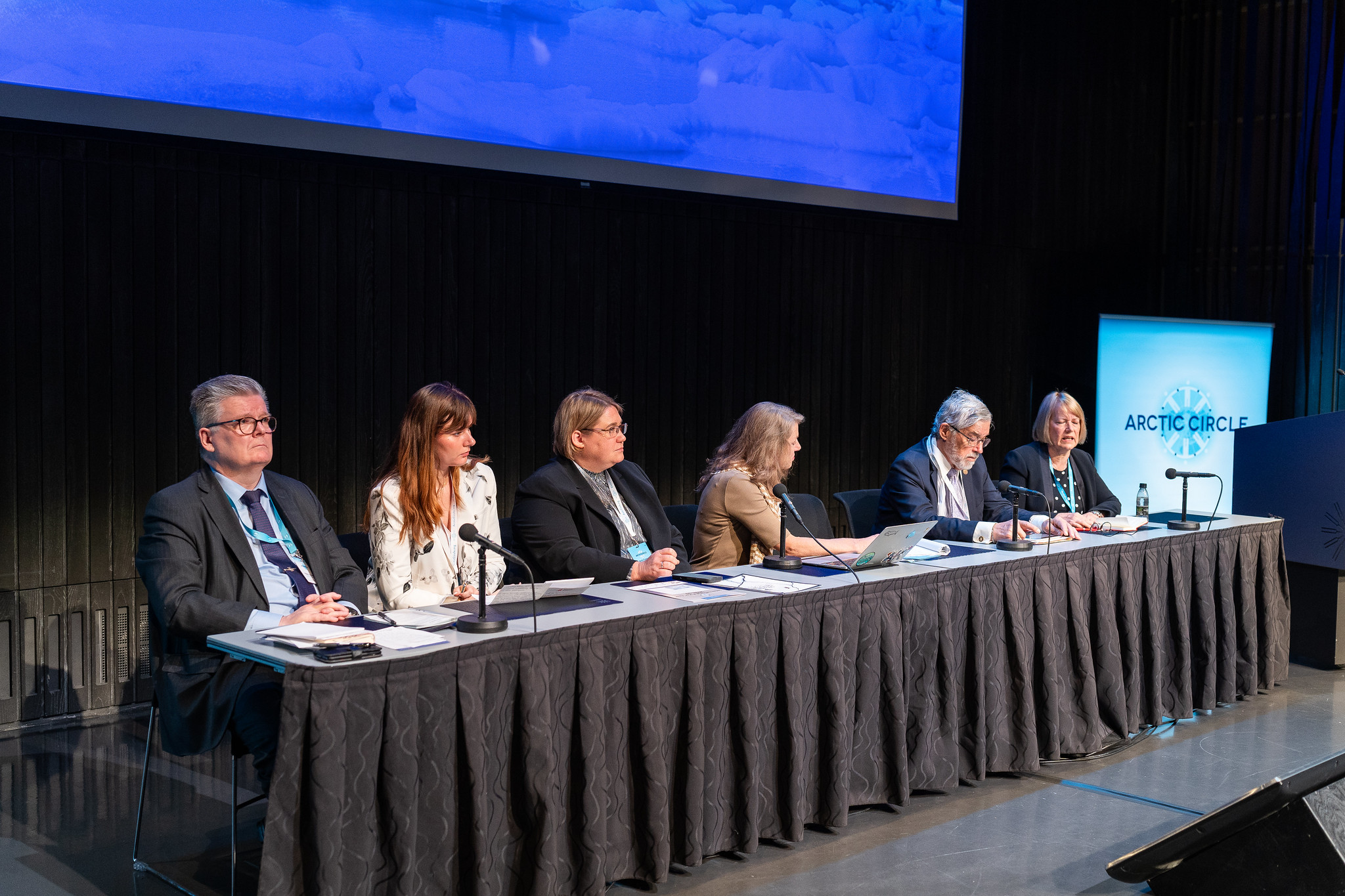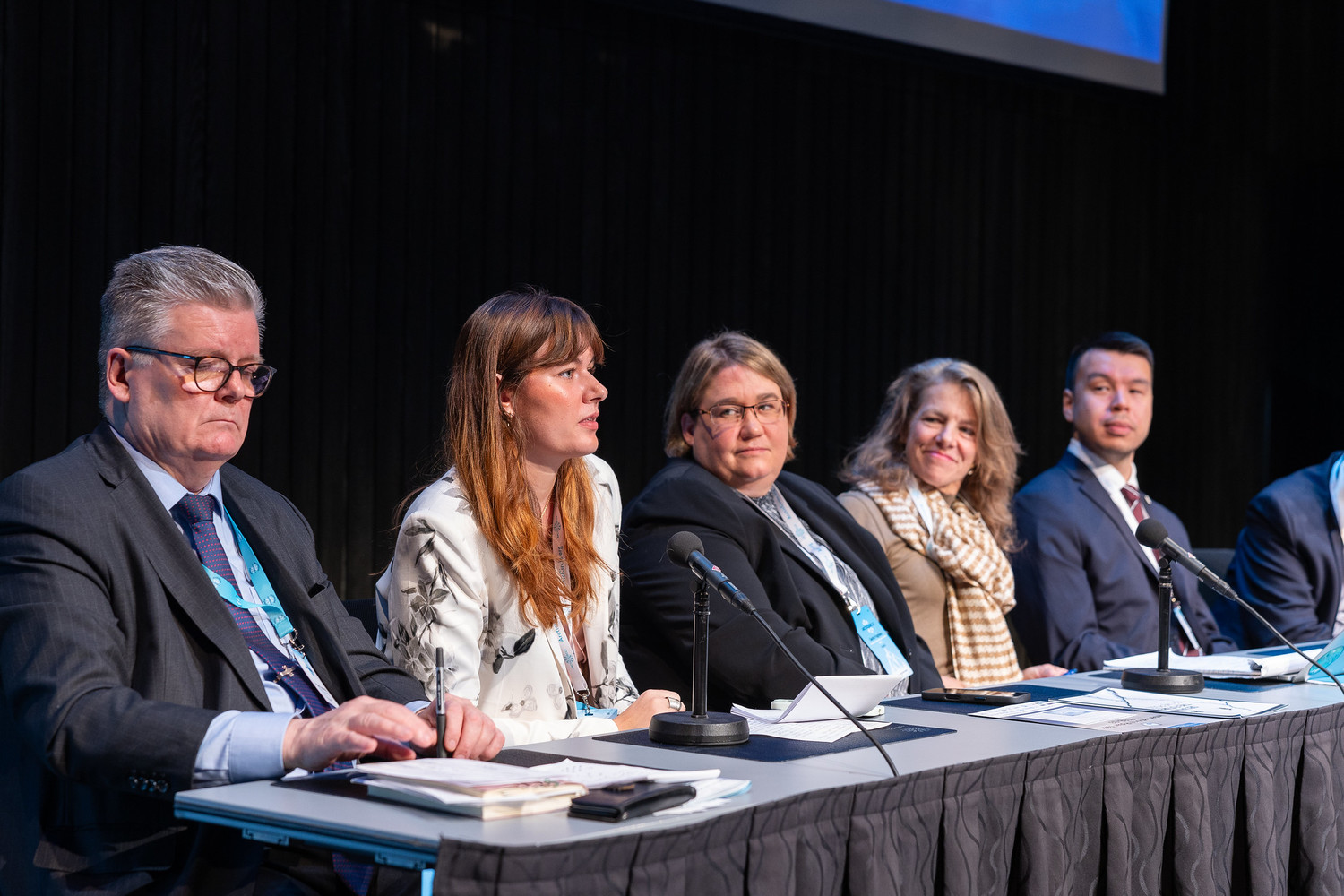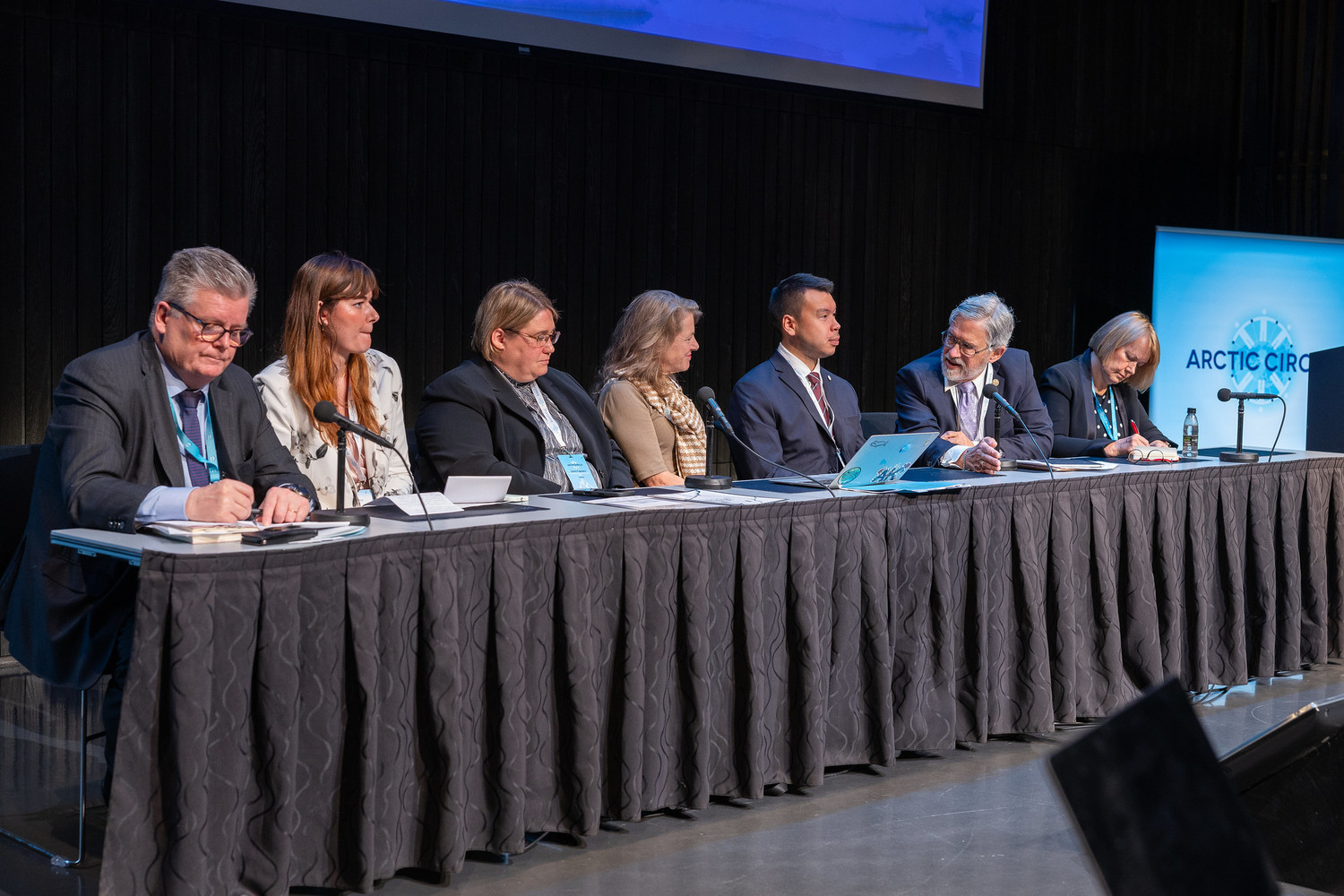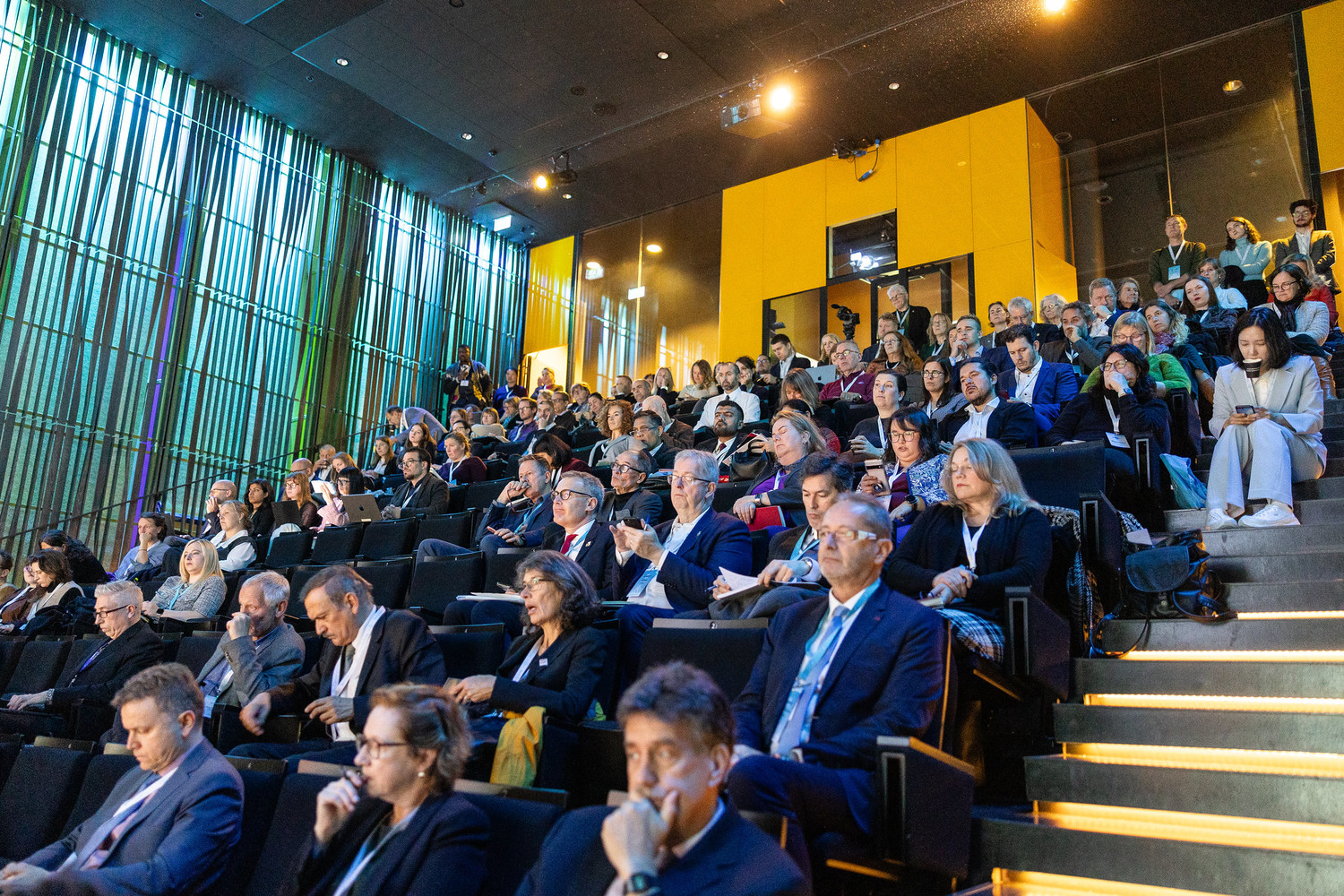
Arctic Circle Assembly 2024
Events
Press release
Initiative
At this year’s Arctic Circle Assembly, held from 17-19 October in Reykjavik, Iceland, the Prince Albert II of Monaco Foundation, in collaboration with the Harvard Belfer Center Arctic Initiative and IASC, co-organized a pivotal session on Polar Science Diplomacy. The panel brought together leading voices from diplomacy, science, funding, and international organizations to discuss the role of science diplomacy in navigating today’s global uncertainties.
Participants included, Petteri Vuorimäki, Senior Arctic Official & Ambassador of Arctic Affairs, Ministry for Foreign Affairs of Finland; Salomé Mormentyn, Polar Initiative Manager; Gerlis Fugmann, Executive Secretary, International Arctic Science Committee (IASC); Margaret D. Williams, Senior Fellow, Arctic Initiative, Belfer Centre; John P. Holdren, Research Professor & Co-Director of the Science, Technology, and Public Policy Program, Belfer Center and Jane Francis, Director, British Antarctic Survey.
Key takeaways:
- Science as a bridge: The panel emphasized the unique role of scientists as "natural diplomats", and that Science diplomacy transcends politics, with scientists collaborating across borders driven by shared goals. Examples were given that bonds of mutual trust and respect within the scientific community can lead to “large and unexpected diplomatic benefits when the scientists rise to positions of political influence in their countries.” These relationships foster long-term cooperation, often resulting in diplomatic breakthroughs — as seen in the US-China climate agreement or the 2015 Paris Agreement.
- Holistic international cooperation, which incorporates science and indigenous knowledge systemsis more critical than ever, especially considering rapid environmental changes in the Arctic and Antarctic. Integrating Indigenous knowledge into research and policy is essential for developing sustainable solutions to the challenges facing polar regions.
- The role of funders is much related to sustaining long-term research and supporting the next generation of scientists. Their support is also key to fostering international multi-stakeholder collaboration and ensuring sustainable management of these fragile regions.
The session
concluded that Science Diplomacy remains a powerful tool for fostering
global cooperation, even in the face of geopolitical tensions. By investing in
the next generation of scientists and providing them with opportunities for
collaboration, we can strengthen the foundations for future diplomatic
breakthroughs and ensure a sustainable future for our planet.
Photos: ©Arctic Circle Assembly



